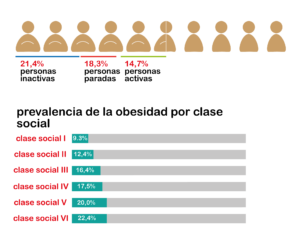Since the scarcity of food is not a problem for most occidental society, the concern to keep a healthy - and optimum- diet has acquired even more prominence now in our contemporary society.

va iniciar la divulgació del concepte
«dieta mediterrània»
Book cover of the book “How to Eat Well and Stay Well.
The Mediterranean Way” that started the dissemination of the concept
«Mediterranean diet»
In fact, more than half the news published in the media about food are related to nutrition, to health, to the benefits and damages of certain nutrients and/or weigh loss diets.
One of the food patrons that counts with the most solid scientific evidence about its benefits in health is the Mediterranean diet. The publication of the book How to Eat Well and Stay Well. The Mediterranean Way around the 20th century by Ancel and Margaret Keys marks the beginning of the interest for this particular diet. This publication, that appeared after the well known Seven Countries Study gave some revealing data about the incidents with cardiovascular diseases and it was stated that the eating pattern of the Mediterranean basin was associated to low rates of coronary diseases.
However, parallel to this interest and to the general knowledge about the benefits of the Mediterranean diet, the epidemiological panorama has changed radically in Spain: from the 60s, infectious diseases have been gradually substituted by an incidence rate of the chronic type and whose demographic results has turned from a young population affected by communicable diseases to one aged and affected by non-communicable diseases and that, to a large extent, has been a consequence of eating habits.
The health effects of a diet far from the Mediterranean diet patron today are more than evident. Studies like the one made by the Hospital del Mar Research Institute estimate that in 2016 there were in Spain about 24 millions of people with overweight, which means an increase on the total quantity of people with overweight of 3 million in only 10 years. A part from the risk in health for the patients, this sanitary cost overrun meant that in 2015 the 2& of the health budget from the Estate was destined to the collateral damages produced by overweight. If this tendency continues, researchers warn, the costs will exceed 3.000 million in 2030.
From the 60s, infectious diseases have been gradually substituted by an incidence rate of the chronic type and whose demographic results has turned from a young population affected by communicable diseases to one aged and affected by non-communicable diseases and that, to a large extent, has been a consequence of eating habits.
Between myth and evidence
The concept «Mediterranean diet» sometimes recalls romanticized ideas about a lifestyle and food habits that, despite everything, is really difficult to exhaustively describe. In fact, for the European Food Safety Authority «Mediterranean diet is not enough cathegorized». To this sums, in addition, the great challenge to find solid scientific evidence on the nutrition subject.
Far from the myth and the romantic ideas, these last years some clinic tests have been developed that have made possible to concise and advance in the knowledge of the benefits of this food patron. One of the biggests researches about the impact of the Mediterranean diet in the prevention of health was developed in Spain between October 2003 and June 2009. The study “Prevención y Dieta Mediterránea” (PREDIMED) had as a goal to check if a low fats diet offered any type of advantages in comparison to a Mediterranean diet supplemented with olive oil and nuts to avoid the appearance of cardiovascular diseases.
7.447 people participated in the clinical test with high risks of suffering some type of cardiovascular accident. PREDIMED showed that the research following a Mediterranean diet supplemented with olive oil and nuts reduced down to a 30% the probabilities of suffering a myocardial infarction, a cardiovascular cerebral accident, or dying due to a cardiovascular accident. This reduction, as some researchers indicate, is even better than the one some medicaments can provide. PREDIMED, also has put evidence that shows that Mediterranean diet lets reduce the risk of suffering from some diseases like diabetes, cancer, hypertension or neurodegenerative diseases.
PREDIMED showed that the research following a Mediterranean diet supplemented with olive oil and nuts reduced down to a 30% the probabilities of suffering a myocardial infarction, a cardiovascular cerebral accident, or dying due to a cardiovascular accident.
Montaña Cámara, full time professor of Nutrition and Bromatology at the Faculty of Pharmacy from the Complutense University of Madrid and president to the Scientific Committee of the Spanish Agency of Food Security and Nutrition (AESAN), defends that the Mediterranean diet concept is still valid to this day: «In countries like Spain, there is a dietetic patron with some particularities that differentiate it from other geographic places. It is true that is not exactly the same as there was in the 60s, but the fact that it changed and that some things are now far from our customs, doesn’t mean that, in general, the population is not following the Mediterranean diet patron».
Food economy

Font: Life habits survey.
Annual report from the national health system 2018.
Ministry of Health
One of the biggest questions in food matters is to know in which way price, education or surrounding factors can influence on the diet selected by each person. According to World Health Organization, the prices and the access to healthy food is what mostly influences on the diet, above the health education they could receive. In this sense, a research, made by a team from the National Institute for Consumer Research of Norway, in which they studied the different surveys done in 15 European countries about the consumption of fruits and vegetables, confirmed that, in global terms, the European population with a greatest socio-educational level tends to consume more fruits and vegetables than the population with less formative level. However, this same analysis declared the differences between the north and the south of Europe. This way, in countries like Spain, those sectors of the population with high educative levels tend to consume less fruit and vegetables, against those living in north countries. Researchers consider that one of the reasons eradicates from the fact that fruits and vegetables are seen in North Europe as «modern» food and, what is more, they have a higher value, therefore are consumed by higher economic level classes. On the contrary, in the South of Europe the improvement on status and the resources could increment the consumption of meat, as well as other products considered of more difficult access for the general population, generally for its elevated price and singularity.
In any case, the nutritional habits that distance population from following a Mediterranean diet is not in the consumption of meat, but in the consumerism of butters, carbonated beverages and pastry. In fact, a recent study between the public administration service and the workers in social exclusion risk included in promotion of employment plans in Cordoba analyzed the differences in the dietetic patrons between both groups. Researchers summed up that, while workers of lower working rank consume less fruits, vegetables, fish and nuts, (which in general have higher prices) their consumption of non-essential and more expensive products, like frizzy drinks, is in general higher. Therefore, the differences with the final price in their shopping bag between the two types are reduced. If fruits and vegetables could appear expensive, so should also frizzy drinks and processed products.
This way, even though the economic factor might influence in some way, it appears to not be determinant in the final price of the shopping bag. However, the social class differences are obvious even in food matters, as say the authors of the study done in Cordoba, the risk of having cardiovascular diseases associated to eating bad is higher in the lower socio-economic population.
On the other hand, public administrations each time take more effort on doing nutritional campaigns for the population, however, there is no scientific evidence that demonstrates that the nutritional training could mark a meaningful difference in the correct decision-making in nutrition. To that joins another of the problems with nutritional campaigns of healthy habits: the scepticism of the population to the nutritional recommendations. To this has highly contributed the wide spread of some low quality studies that contradict each other.

However, as explains Cecilia Díaz Méndez, fulltime professor of Sociology and main researcher from the Food Sociology group from the University of Oviedo, the question is still open since, when it is analyzed the groups with higher adhesion to a Mediterranean diet it is observed that it is people over 65, that, in general terms, are of low social class and have a low educative level. This means that a woman, housewife, that hasn’t gone to university or even hasn’t reached average levels of education, has a food culture powerful enough to compose a good diet. Therefore, Cecilia Díaz Méndez defends that it is necessary to analyse the symbolic and cultural value of food, not only the educative or economic level.
the population group with higher adhesion to a Mediterranean diet are the people over 65, that means that a woman, housewife, that hasn’t gone to university or even hasn’t reached average levels of education, has a food culture powerful enough to compose a good diet.
Is media the most influential when choosing a food style?
For most of the population, differentiating fact from opinion is more and more complex. There are voices who even question the effectivity of consolidate opinions like the well-known nutritional pyramid. In fact, there are some researchers that propose the withdrawal of nutrient based campaigns: «The real problem is not nutrients but type of food. A foodstuff is more than just the sum of nutrients and calories. Maybe bioavailability is even more relevant», they say. However, Montaña Cámara assures: «Communication based on nutrients should never be confusing, fibre is what it is. Nevertheless, population may not understand, and if that’s the thing, it could be there is a problem, and is for this reason that I defend that nutrition should be subject of basic study».

In this sense, the epidemiologist Jesús Vioque appears to be convincing and affirms that, even if knowledge influences when making decisions in a nutritional aspect, the biggest obstacles to carry out an adequate diet are probably external to the own individual. «Costs, accessibility, time availability- affirms- influence so the consumption of certain healthy food like fruits, vegetables and legumes appears to be reduced, in front of the easiness and accessibility with which ultra processed food, among which unhealthy food is included, sometime at unbeatable prices».
The consensus about the relevance that unhealthy food environments have is overwhelming. In fact, the Nutrition Group of the Epidemiology Spanish Society published in 2019 an article in which they established five interventions that they considered to allow a reduction in obesity formulated in the acronym PODER: Advertising, Offer, Demand, Labelling, Reformulation. As the group explains in the article published in the Gaceta Sanitaria «the systematic mark of politics for the prevention of obesity and non transmissible diseases associated to it is based on three fundamental pillars: eating system, change on behaviour and eating environment».
To prevent obesity and the non transmissible diseases associated to it, it is crucial to follow politics based on a change in the eating system, change on behaviour and eating environment
Do we need to recover the Mediterranean diet?
With the advance of science in nutrition the last years and with the proliferation of alternative diets that seems to fit more in the current life style, it would seem the canon of the Mediterranean diet has become an unreachable myth for most part of the society. Maybe for this reason, the diet, as a reflect of social changes, has changed parallel to the lifestyle of the Spanish society all along these last 50 years. Options as the intermittent fasting, which consists on not eating food during a period of time of at least 12 hours a day, have been getting more and more social relevance despite the doubts that arouse in the scientific community.
The so called functional food presents as an eating option that not only is able to feed us but, allows to improve the physiologic functions of our organism. A new promise of the perfect eating habit opens in the horizon. In addition to it, the scientific advances seem to open a new world of possibilities for the personalized nutrition; which means, à la carte for each person. Thanks to the researches done in the human genome ambit, for instance, it is possible to detect genetic variations that predispose the obesity and, therefore, diseases associated to it.
An example of innovation on eating matters is, for instance, the project that has been developed in Biópolis. The company, pioneer in genomic in Spain, is dedicated to the research and development of industrial microorganism with health purposes. Among them, they have implemented bacteria that is able to improve the health of patients with the Prader-Willi disease. As the supervisor explains, the researcher Daniel Ramón: «What 20 years ago seemed like science fiction, is no longer that far, I can see no inconvenient- he assures- for the time my grandchildren are born, their genome could be sequenced and their parents will get to know all the mutations that could predispose to develop certain pathologies».
Even if it seems an utopia, it is close, Daniel Ramón is also a realist, and, for this reason, he affirms: «Biotechnology can offer solutions for obesity and malnutrition problems, but it is firstly necessary to stablish political and social measures, if so, biotechnology could actually be of big help».
Therefore, the Mediterranean diet not only follows a healthy eating option but also the more adequate option for most of the Spanish population. As the researcher Montaña Cámara explains, one of the essential aspects of the Mediterranean diet is the commensality: to get together in order to eat as an excuse to socialize with everyone is a cultural characteristic. And, diet, is also a reflect on culture.
In addition, the new focuses on eating matters give more and more relevance to the idea that an adequate nutrition must be necessarily a sustainable nutrition in environmental ecology terms. In this sense, an experts commission published in the scientific magazine The Lancet an article in which they pointed out that the three pandemics that affect the most to the population’s health to a global level are obesity, malnutrition and climate change. This commission not only pointed out the interaction between the three menaces but also claims that the answers to the eating challenges of the population go necessarily through a diet that protects the planet.
In the case of Spain, the follow up of the Mediterranean diet is, according to this ecologic criteria, even more necessary: not only is it the most healthy eating pattern in comparison with the vegan diet and the Occidentalised diet but also, along with the vegan diet, the one with less environmental impact.
The follow up of the Mediterranean diet is, according to this ecologic criteria, even more necessary: not only is it the most healthy eating pattern in comparison with the vegan diet and the Occidentalised diet but also, along with the vegan diet, the one with less environmental impact.
For Cecilia Méndez-Díaz, there are reasons to be optimist: although the transformation of the diet with the inclusion of products that shouldn’t be consumed with so much frequency is concerning, it is also true that the last years it has been produced an increasing interest on preserving the Mediterranean diet and the cultural environment is clearly favourable to it.
In fact, what looks striking for this researcher is how it is possible that the Mediterranean diet is so resistant to extern influences since, for instance, there hasn’t been a change into a model of an only main meal during the day as it’s done in other countries from the north of Europe. For this reason, she affirms, «we are in a suitable moment for the transformation into a more healthy and sustainable diet, and that can be achieved relying on this eating culture that has demonstrated to be so resistent».
The sociological and epidemiological analysis shows that the actions on public health directed to guide the individual decisions towards a healthy option are not enough. Therefore, it is necessary global policies that tackle the socioeconomic difficulties of the consumers. This includes improving the accessibility to more healthy products and offering to the most vulnerable population extended educational programs on nutrition. Through the programs based on those characteristics of the Mediterranean diet that, against all prediction, are strongly rooted to the Spanish culture like commensality, the value of food at home and the frequent consumption of fruits and vegetables, among others, can be design effective promotion campaigns about healthy nutrition.
It is necessary global policies that tackle the socioeconomic difficulties of the consumers. This includes improving the accessibility to more healthy products and offering to the most vulnerable population extended educational programs on nutrition.
Because, even if the prevalence of non transmissible diseases associated to bad eating habits has increased considerably, it is also true that the population does want to eat better.
















